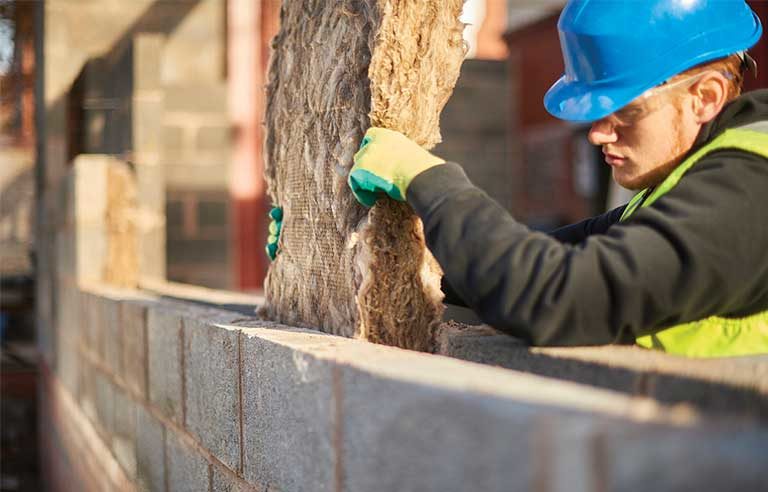Perform façade work safely

The first rule of performing façade work while on a scaffold: Don’t do it unless you’ve completed scaffold safety training, warns a recent worker alert from the New York City Department of Buildings.
“Façade work performed on scaffolding can be extremely dangerous,” the alert states, “and proper care must be taken at all times to prevent death or serious injury.”
To help ensure safety when doing façade work, follow this guidance from the department:
Know your equipment. Workers need to be trained before stepping onto a scaffold.
Wear fall protection. Employers are required to provide fall protection when workers are on a supported scaffold with no guardrails, or anytime work is being performed on an adjustable suspended scaffold. “Wearing a harness is not enough,” the department says. “You must be tied off to a secured lifeline for it to work.”
Use extreme care when removing coping stones. “Do not remove the coping stone or any stones used to cap freestanding walls unless directed by your supervisor.”
Parapet walls should be demolished from the coping down. Don’t demo individual bricks or masonry blocks – remaining wythes may become unstable. Make sure that remaining parapet walls adjacent to demolition will not become unstable.
Look for loose material. “Alert your supervisor immediately if you notice a parapet, cornice, chimney or other brickwork that is loose or seems like it could fall off the building.” Tiebacks need to be properly anchored.
Secure tarps. Don’t lean any items such as debris bags or construction materials against the parapet wall. “Tarps and other temporary weather protection must be secured at the end of the work shift so they cannot be accidentally dislodged or come loose.”
One final piece of advice: “Do not work on a suspended scaffold that has a stand-off bracket.”
Post a comment to this article
Safety+Health welcomes comments that promote respectful dialogue. Please stay on topic. Comments that contain personal attacks, profanity or abusive language – or those aggressively promoting products or services – will be removed. We reserve the right to determine which comments violate our comment policy. (Anonymous comments are welcome; merely skip the “name” field in the comment box. An email address is required but will not be included with your comment.)

